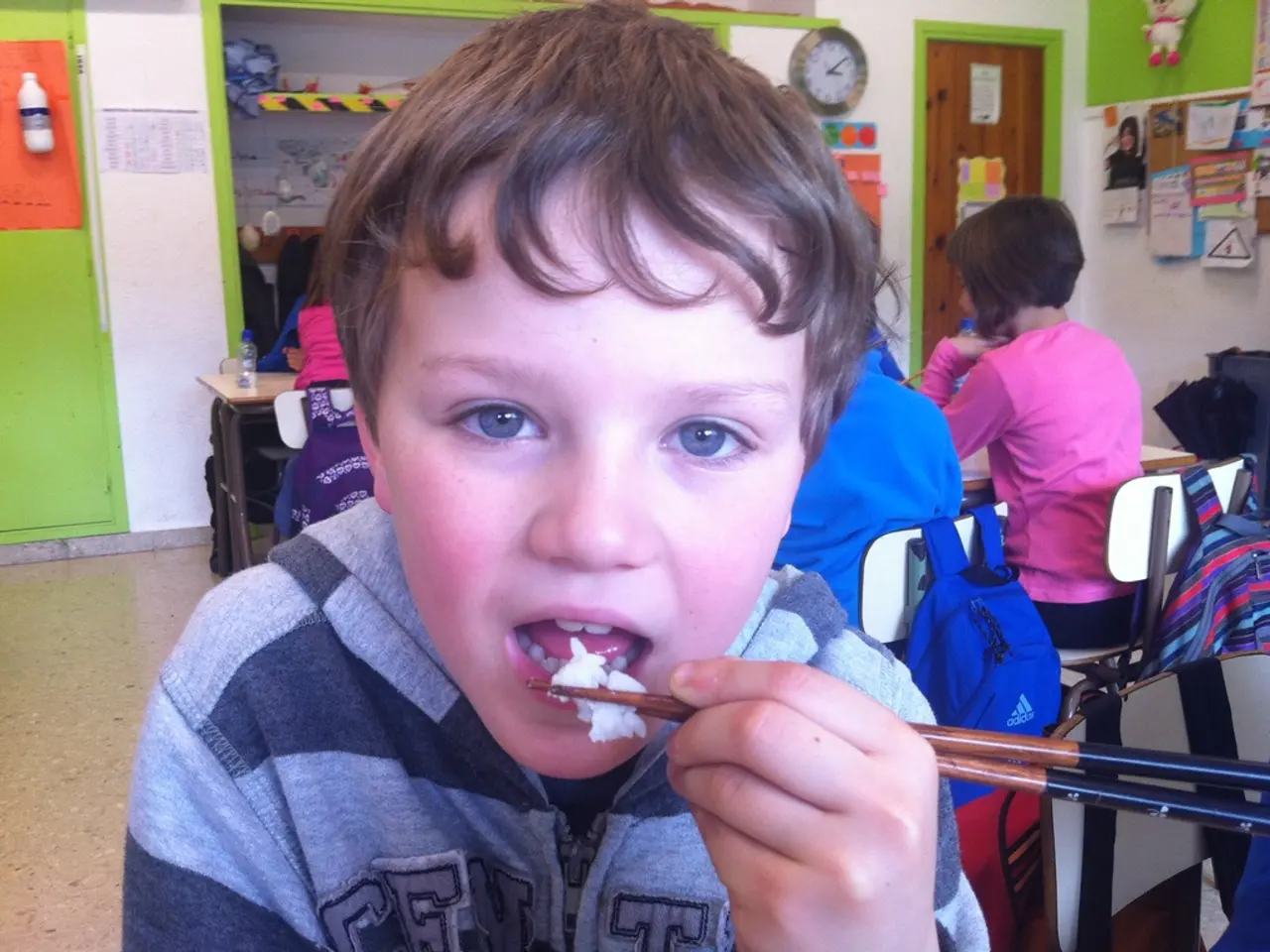Sausages and mini-pizzas, once commonly offered in Russian schools, have been officially forbidden
School sausage rolls, mini-pizzas, and pies have been banned in schools across Voronezh Oblast as part of a new school nutrition reform aimed at fighting childhood obesity. The region launched a pilot program in selected schools to remove fast food items and revise school menus to focus on balanced nutrition, proper calorie content, hydration, and healthy eating principles [1].
The pilot phase is starting in six schools and three municipal districts in August 2025, with cooking workshops and educational activities on healthy nutrition incorporated into the program. If the pilot is successful, this reform plan will be expanded across the entire Voronezh region during the second half of 2026 [1].
The initiative aligns with a broader national effort in Russia to promote nutritional education and preventive health measures among children to encourage long-term healthy lifestyle changes from a young age [1]. New approaches for a balanced diet are being considered, with calorie content and nutritional value as top priorities.
The updated menus aim to reduce the amount of sugar and simple carbohydrates. Some schools have already updated their menus as early as September 1, replacing unhealthy food with salads, vegetables, and fruits [1].
Regional experts emphasize that food should be healthy and tailored to the child's physiological needs. The success of the initiative depends not only on school meals but also on family eating habits, according to reminders to parents [1].
The ban is due to a sharp increase in the number of children with obesity in the region, with over 10,000 schoolchildren currently diagnosed [1]. Discussions about the initiative are happening on forums and in parent chat groups.
If the initiative in Voronezh Oblast is successful, it could potentially influence similar changes in other regions. The initial ban was enforced in Bobrovsky, Buturlininsky, and Novohopersky districts, with plans to expand to all schools in the region [1].
The fight against childhood obesity is not limited to Voronezh Oblast; the State Duma is discussing a nationwide ban on pizza, sweet drinks, and fast food in school cafeterias. Only time will tell if the initiative in Voronezh Oblast will be effective in changing children's habits. However, doctors warn that the diagnosis of childhood obesity can lead to mental health issues, diabetes, and cardiovascular problems [1].
[1] Source: Regional Health Department of Voronezh Oblast. (2025). Voronezh Oblast School Nutrition Reform: A Step Towards Healthier Children. Retrieved from https://www.voronezh-region.ru/news/voronezh-oblast-school-nutrition-reform-a-step-towards-healthier-children/
- The school nutrition reform in Voronezh Oblast, aimed at combating childhood obesity, includes an emphasis on education and self-development through cooking workshops and activities that focus on maintaining a balanced diet.
- In line with the national effort to promote health-and-wellness, the initiative in Voronezh Oblast also prioritizes nutrition in fitness-and-exercise routines, suggesting nutrient-rich food options to support the physiological needs of children.
- To ensure long-term, healthy lifestyle changes, the school reform is not only altering school menus to emphasize science-backed nutritional principles but also encouraging healthy eating habits at home through reminders to parents and family members.








